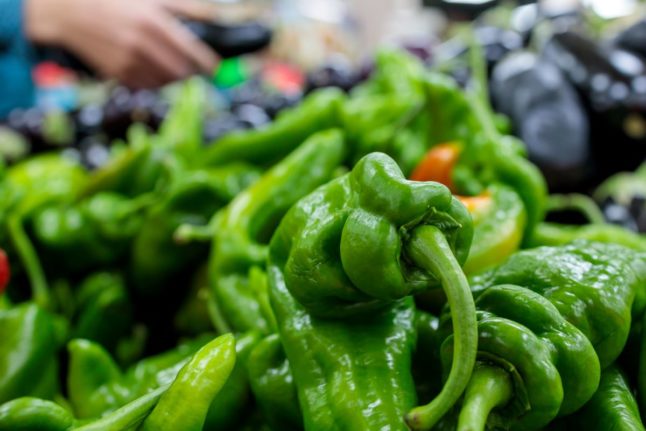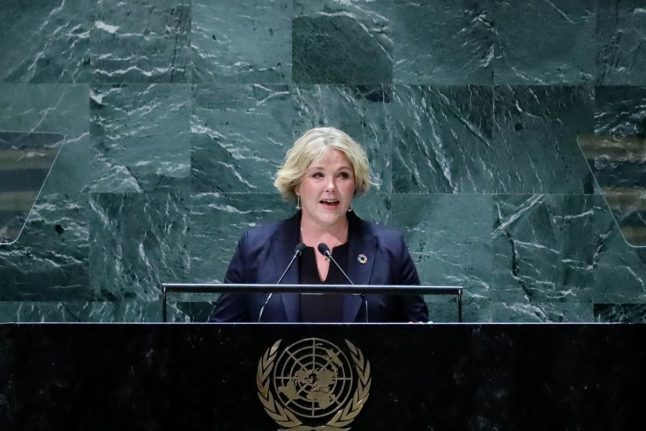Norway Minister for Trade and Industry, Jan Christian Vestre, has said that the country’s plan to clean up the grocery sector and keep food costs low for the public has shown signs of working.
“I feel very confident that the sum of the measures contributes to better competition. It can also result in lower food prices,” he said to business news publication E24.
READ ALSO: What’s going to happen to food prices in Norway in 2024?
The minister said that two of the measures have already positively impacted consumers. He has said that the government stopped supermarkets from using the media to announce price increases.
The government had previously called the supermarket industry’s practice of announcing future price increases in the media a form of ‘illegal price collusion’, whereby all supermarkets announce increases regardless of different costs and overheads.
He also said that the government drew attention to ‘price windows’, which saw supermarkets change their prices wholesale twice a year. Norway’s Competition Authority has previously said the practice leads to poorer competition.
Supermarkets in Norway have abandoned this practice and now negotiate with suppliers continuously, leading to more dynamic price changes. Industry experts have said this system has several pros and cons.
More recently, the abandonment of this practice by Norway’s largest supermarket groups has been pointed to as a reason for a slowdown in food prices.
Due to lower inflation and a stronger krone, Norwegian supermarkets have been able to secure lower prices from their suppliers earlier than if they had waited for the price windows.
“Now we negotiate all year round, and when we receive a cut in prices, this goes straight to the customers straight away, through lower prices,” Pia Mellbye, sales and marketing director at Rema 1000, recently said.
Between November 2022 and November 2023, food prices increased by 9.1 percent. This year, they are only expected to increase by around 4 percent.
However, more stable prices could also be due to Norway’s three cheapest chain being locked in a price war to try and gain market share.
Furthermore, industry experts and figures from the supermarket industry have said that the government’s plan is unlikely to work out and could contribute to higher food prices.
Strategy advisor and expert on grocery policy Erik Fagerlid said that all the various measures from different business ministers over the past 10–15 years have led to more expensive food prices in Norway due to the extra work the policies create for business.
“Who pays for this work? Of course, us consumers, in the form of higher prices for groceries,” he told E24 recently.
He added that previous ministers’ work had failed, and Vestre’s plan was likely to do so, too.
“The ministers of industry before Vestre have, despite corresponding enthusiasm and joy over their own initiatives, failed completely. Vestre’s ten-point list will probably suffer the same fate,” Fagerlid said.
Vestre said that the government would push on with its plan.
“The government will not stop tackling challenges, especially in markets on which all Norwegians are so dependent, because it can lead to some time consumption for the players. That would mean we would have to stop developing policy,” the minister said.
At the beginning of the year, new legislation took effect, which barred supermarkets from putting clauses in place that prevented competition from taking over premises once the existing store moved out or changed locations.
Iceland Mat, the Norwegian arm of the British supermarket Iceland, has previously pointed to such clauses as one of the factors that led to the closure of some of its stores. The other factors were Brexit and finding a suitable location in the first place.
Vestre said removing such clauses would make it easier for foreign stores to gain a foothold in Norway, providing more competition and potentially offering consumers cheaper prices.
Fagerlid said smaller floor space in Norway, high costs and import restrictions would make it hard for any foreign supermarket to gain a foothold in Norway. He said he wasn’t aware of any international chains considering the country as an option.



 Please whitelist us to continue reading.
Please whitelist us to continue reading.
Member comments